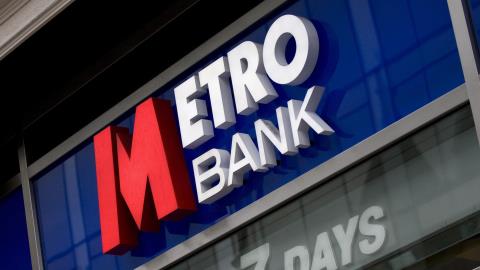Metro Bank has faced significant challenges recently. The UK challenger bank’s announcement of plans to raise up to £600 million from investors led financial regulators to request a meeting with the bank’s executives.
Following a nearly 30% drop in shares on Thursday, difficulties began in mid-September when the Bank of England stated that it would not provide capital relief for mortgage lending until at least 2024. Metro Bank has been attempting for years to gain approval from the Prudential Regulatory Authority (PRA) to utilize internal models for its residential mortgage business, intending to use its own historical data to assess loan risk. This approach, which diverges from standard capital rules, would enable Metro Bank to hold less capital under Basel III and the forthcoming Basel IV if loans are classified as less risky.
On Thursday, Metro Bank met with competitors, including HSBC, NatWest, and Lloyds, to discuss the potential sale of a third of its mortgage portfolio in an effort to fortify its balance sheet. The bank has engaged Morgan Stanley for advice on the situation and potential capital raise, potentially relying on the expertise of seasoned banker Guillaume Gabaix, who previously played a key role in advising UBS during its acquisition of Credit Suisse.
Metro Bank’s situation reflects a wider trend, as it joins other institutions such as Credit Suisse, Silicon Valley Bank, Signature Bank, and First Republic, all of which have faced difficulties over the past year.
UPDATE: After extensive negotiations over the weekend, Metro Bank has successfully secured a deal to refinance £600 million of debt and is in discussions to sell £3 billion of its mortgage portfolio. Colombian billionaire Jaime Gilinski Bacal’s Spaldy Investments will inject £102 million into the bank, increasing Bacal’s stake from approximately 9% to around 53%. Following this news, shares in Metro Bank experienced a rebound in early trading on Monday.
